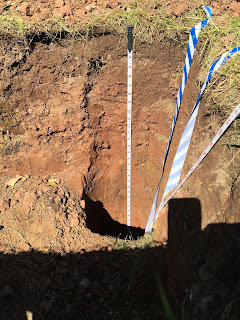Agricultural Science Students have been busy. Studying Fruit and Vegetable Identification for an FFA competition (above).
One this past June's graduates, Zach, interned at a local molecular biology lab. He then came in to share his story and educate our current students on DNA and protein production basics as well as new genetic techniques like CRISPR.
One of the best parts to Zach's story is how much excitement and energy he brought back from this experience. He currently attends RVCC with a NJ Stars Scholarship and plans to attend Rutgers right after.
The Animal & Plant Biotech Students completed their safety lessons and began working on making calculations for solution prep and associated tool use. Some tools and equipment learned so far are: pipettes and biosafety cabinet. All Biotech students are required to maintain a lab notebook to professional standards. This lab notebook in intended to be used for a portfolio in position applications.
Agricultural Research and Development Students have taken a survey to determine their talents, and reported on how talents compliment and the power of diversity. They are wrapping up researching current global agricultural problems. Their next step will be to complete a brainstorming activity to narrow their current research down to a topic they will follow for the year.
Plant Science students have been learning about soil science. They have covered soil properties such as texture, permeability, erosion, water holding capacity, soil organisms, how all these factors influence soil color. Pictured here students are applying all they have learned by predicting what they will find in a soil pit from given information. They document all the pit findings then write a lab report communicating their findings.












